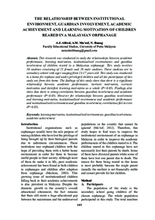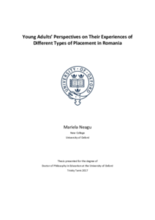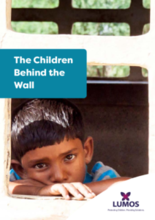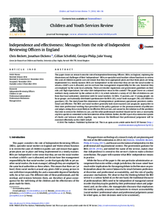Displaying 751 - 760 of 1482
This research was conducted to study the relationships between academic performance, learning motivation, institutionalised environments and guardian involvement of children reared in a Malaysian orphanage.
This study explores the childhood experiences and transitions to adulthood of 39 Romanian care leavers and adoptees, born around 1989 - 1990.
The objective of this essay is to determine how substitute child care in the Czech Republic has changed in the last ten years.
In this video from Time for Global Action: Advancing the Sustainable Development Goals, Stephen Ucembe shares his experience of living in an orphanage and how institutionalization was detrimental to his development and wellbeing.
Working collaboratively with two state associations and their member (nonprofit) agencies providing out-of-home care to children and youth, University researchers conducted a multi-site project to examine whether there were any differences in individual child-level outcomes between children placed in residential group care and those placed in foster.
Similarities and differences in the (short-term) psychosocial development of children in foster care, family-style group care, and residential care were investigated in a sample of 121 Dutch children one year after their initial placement.
This publication from Lumos describes the institutionalization of children the world over and its impacts, calling for an end to institutions and highlighting some of the particular groups of children who are most deprived of liberty.
This Opinion Piece traces the rise of statutory kinship care in Australia from the progressive reduction of residential care and the struggle to recruit sufficient foster carers to meet demand for protective care.
The paper draws on a mixed methods study the role and effectiveness of Independent Reviewing Officers in England.
This study examined the status of the State Program on Deinstitutionalization and Alternative Care (SPDAC), a public policy aimed at transforming 55 institutions covering 14,500 children during 2006–2016 in Azerbaijan.




